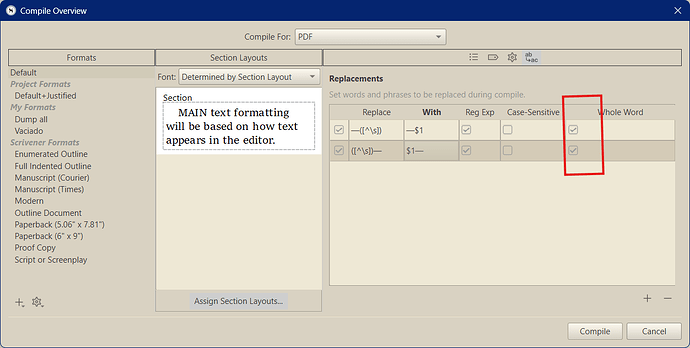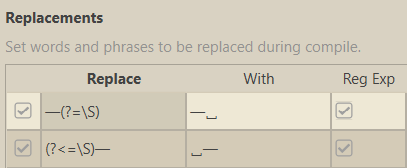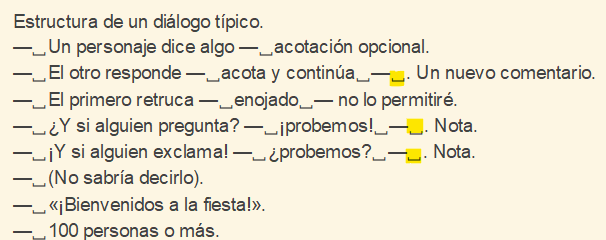Hi Scrivener team,
You may already know this, but to clarify my suggestion I’ll briefly explain the context, just in case.
In Spanish (and I guess that in other languages too), dialogues in narrative are represented differently than in English. In English you’d say:
“Hi,” he said. “Long time no see.”
In Spanish, however, dialogues are usually represented by a new paragraph starting with an m-dash (which I replace in the following example with a single hyphen):
-Hola -dijo él-. Hace tiempo que no nos veíamos.
Narrator comments are placed between m-dashes as well, which act as a sort of opening and closing parenthesis. In the example above: -dijo él- is a narrator comment (the “he said” part).
The problem arises when Scrivener compiles the dialogues. It’s not uncommon that either the opening or ending m-dash of a narrator comment is placed alone at the end or beginning of the line, as it is considered, I presume, a symbol and not a punctuation character like a true parenthesis. So you may end up with several paragraphs that looks like this:
-Estoy seguro de que este problema tiene solución -
dijo-. ¿No crees?
-Estoy seguro de que este problema tiene solución -dijo
-. ¿No crees?
Instead of what you find in actually published material, like this:
-Estoy seguro de que este problema tiene solución
-dijo-. ¿No crees?
I suppose that if the m-dash was considered by Scrivener a true punctuation character, just as the comma, the period, the colon, etc., it’d never be left alone and be treated always an “in-word” character which won’t be split.
Note that this is different from the true hyphen, which actually is allowed to split words in Spanish and, as such, is welcome at the end of a line.
Is it possible that you consider supporting this behaviour?
Many thanks in advance.




